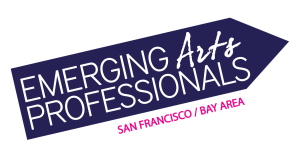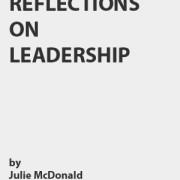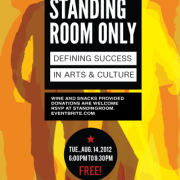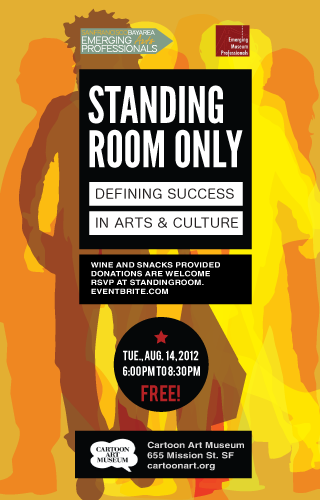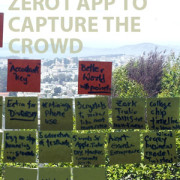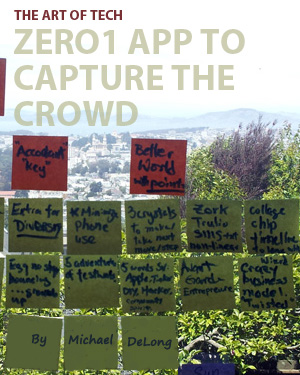Reflections from The Living Altar: Liberatory Practice from an Afro-Indigenous Lens
Rekia Boyd. Sandra Bland. Trayvon Martin. At Emergence 2016 these were but a few of the names lifted up, floating atop a sea of “Ashe’s” in a collective pouring of libations. In the tradition of Black Liberation organizing, I draw upon the practices that have sourced the resilience of my ancestors for generations—altar building, collective chant or song, and pouring water as an offering and reminder of the ongoing life that connects us all. Emergence conference attendees gathered in a large circle, joining me in a calling in of those passed on, those lost to state violence, those whose lives have become the testimony for the work we call “cultural equity” to require at base, a radical shifting of power—and to shift power requires a radical participation from all of us. During the course of the day I hosted a ritual and reflection zone called The Living Altar. The intention was to provide a space where conference attendees could ground in the body and integrate the content they were ingesting in workshops throughout the day. Forming a sacred hoop of candles and cowrie shells, I arranged a colorful altar at the south gate of the medicine wheel adorned with offerings of food, healing herbs, fresh flowers, and items from my own Afro-Indigenous lineage. Attendees entered the circle and became participants in a reverential act of writing letters to the ancestors. They inscribed their messages on the apron hem of a Black Madonna, an in-progress painting of a deified Black Mammy anointed with a halo of sunflowers. Calling in the Egun (origin: Yoruba for ancestors), participants connected to their roots, writing messages that reflected a range of gratitude, grief, confusion, and empowerment. This space transformed attendees into participants. Such is the gift of anchoring in the ritual act of ancestral reverence. It requires us to first examine the soil we are standing on, the inheritance we have been given in this skin, and the privileges and internalized oppressions thus received before attempting to build alternatives.
Skilled organizing, and by extension compelling facilitation challenges us to stretch beyond our comfort zones, confronting our preconceptions of freedom, justice, and yes—equity. How do we create spaces that bring people into authentic connection with one another? How do we provide practical tools that strengthen capacity for these uncomfortable but necessary dialogues? And once we’ve gotten people in the room, how can we keep them invested, engaged enough—across varying life experiences and identities—to move to a place of action that extends beyond the conference, training, or workshop container? These conversations reveal the Anglo-European dominant culture embedded in our work and daily praxis. It is an active choice to moment by moment resist reinforcing these oppressive norms, and conversely embody an alternative.
To truly progress along the trajectory of diversity to cultural competence to liberatory practice, requires a complete transformation in how we do this work. It’s simply not possible to squeeze a new model inside of an old construct, and yet this is often what we do for lack of familiarity with a less-colonized alternative. We insert LGBTQQIA2-S people-of-color into spaces that are still dominated by a prevailing white heteronormative framework, and wonder why these spaces have not shifted overnight to reflect the equitable, social justice experience we imagined they would bring. We offer an arts-based workshop and a “healing” space in an already packed conference agenda and check off the box for including something “holistic” and accessible. If it is truly our goal to employ liberatory practice, and not just an infusion of diversity into spaces maintaining the status quo, we need to completely reimagine what these spaces could become.
Currently, I am codifying an Afro-Indigenous framework for activism and community organizing through a multidisciplinary platform called, #DignityInProcess (learn more at www.ChE-Art.Life ). This response to the Black Lives Matter movement merges art activism, ancestral healing, and intersectional identity exploration within the Queer and Trans,* Afro-Indigenous Diaspora. Bringing together dance, ritual, storytelling, and pop-up installation, #DignityInProcess creates immersive experiences into a decolonized archetype. As #DignityInProcess has already offered workshops, performances, and art actions gathering the stories of Black, Creole, Native American multi-generational voices across the West, East, and Gulf South Coast, some foundational guideposts of an Afro-Indigenous framework for organizing emerge:
- Non-Vertical Hierarchical Structures: Maintaining the Circle (i.e. Community, Family, The Village) as the central model for all organizing, honoring that every position in the circle has something valuable to offer, and the wisdom of the collective is greater than that of the isolated individual.
- Ritual and Ancestral Healing as the framing for conversations about race and gender justice. Beginning with the lineages we carry into the room, we create space to honor the gifts and challenges we’ve inherited from our ancestors. Allowing these practices to increase resilience, presence, and capacity for deepened, sustained engagement.
- Embodiment: Understanding that experiences of both freedom and oppression live in the body. Thus all work regarding healing the impacts of racism and gender oppression require participation of the body. This presumes experiencing the body in a nondual way, where soma and consciousness are not separate.
- Intersectionality: Understanding the hierarchical nature of power and how belonging to multiple discriminated forms of identity can mean one’s wholeness is compartmentalized, invisibilizing one’s full experience. Instead we hold race and gender identity as interconnected, non-binary elements that are always in relationship with one another.
These are just some of the learnings that have emerged as #DignityInProcess unfolds, continuing to evolve and take shape. The practices I bring into #DignityInProcess have been passed down to me from the African American, Creole, Congolese, West African, Nigerian, Native American elders I have had the honor of sharing family and community with. It is this collective wisdom sharing that continues to strengthen my leadership as a Queer Mixed/ Indigenous/ Black multidisciplinary artist-activist and consultant working at the intersections of race and gender justice. I encourage us to consider centralizing these decolonized alternatives in the spaces we create to uphold cultural equity. To invite in the leadership of these powerful communities is to reimagine how together we can achieve collective liberation.
Artist’s Note: The Black Mammy Madonna is part of a #DignityInProcess: Black Madonna Series in honor of the #SayHerName campaign. This series celebrates the Black Feminine* as God in her many forms of African American, Afro-Indigenous, Creole, Afro-Latinx, Mixed Race, LGBTQQIA2-S identity. ChE’s intention for these Sacred mixed media paintings is that they eventually find a home on the altars of seven individuals sharing roots with the African Diaspora. If you would like to inquire about commissioning a Black Madonna, please contact ChE directly at che.art.life@gmail.com.
About the Author:
ChE (pronoun- they/ them/ their) is a Queer Afro-Indigenous artivist working at the intersections of youth leadership development, consulting in liberatory praxis, and socially engaged artmaking. As a director/ choreographer, ChE’s work is robust with gospel soul sounds and movement of the African Diaspora that leave feet stomping and hands clapping. Currently ChE is developing a framework for Afro-Indigenous activism piloted through #DignityInProcess, a multi-disciplinary platform responding to the Black Lives Matter movement through ancestral healing, art as direct action, and sustainable leadership models within the Diaspora. To follow the process visit www.ChE-Art.Life.
